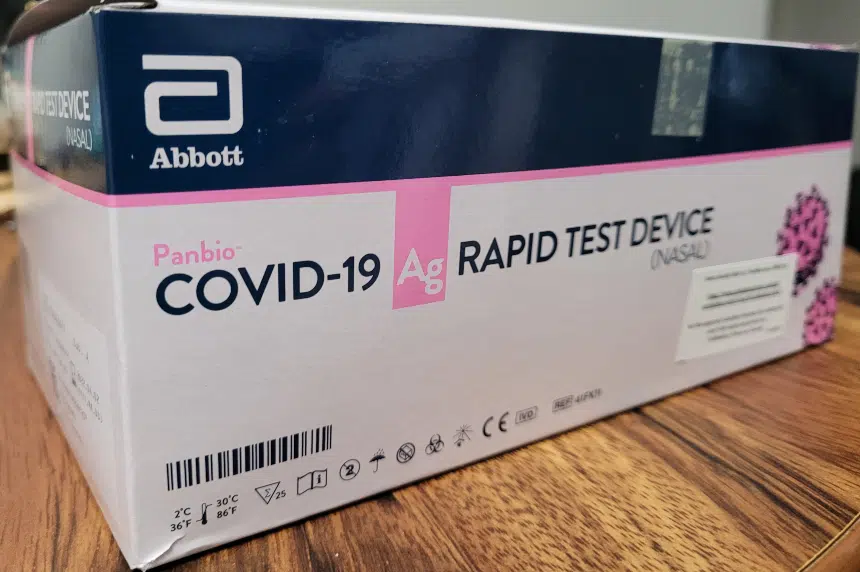Elementary schools across Saskatchewan are quickly running out of at-home rapid tests.
In Saskatoon, tests are leaving with families about as fast as they’re arriving.
Last week, the province announced 475,000 tests would be sent to elementary schools for students 11 and under, as they are not yet eligible for COVID-19 vaccinations.
Beginning Monday, parents with children in the province’s four biggest divisions — Regina Public Schools, the Regina Catholic School Division, Saskatoon Public Schools and Greater Saskatoon Catholic Schools — could request the rapid tests, but supply has been hard to come by.
“We’ve heard from several principals that the kits went very fast, with many schools reporting they have more families waiting to get a kit than actually received one,” said Veronica Baker, manager of communications and marketing at Saskatoon Public Schools.
“I have not heard of any of our schools having leftover kits.”
Baker said more rapid antigen kits have been requested but the provincial government hasn’t provided a timeline for when more may arrive.
The situation is nearly the same in Regina.
Terry Lazarou, the supervisor of communications at Regina Public Schools, said tests are hard to come by at this point.
“Parents and school families have been very eager to get these tests,” he said. “Will we be getting more? We certainly hope so.”
Lazarou said tests were sent to all 47 public elementary schools in the city, but only about 20 per cent of what would be needed to supply all families with children 11 and under with one kit.
Each kit contains 25 tests. Baker said the province determined the allotment for each school.
In Saskatoon, 2,500 tests were distributed to the 51 public schools and an additional 2,000 kits were sent to 43 elementary schools in the Greater Saskatoon Catholic Schools division.
Schools have added families to waitlists that are growing larger by the hour. At St. Therese of Lisieux Catholic School, all 62 kits were taken home by Wednesday.
“I have spoken to a number of schools today. I know that some have completely run out (and) some have a limited supply because parents are very interested in these,” Lazarou said.
In an emailed statement, the Ministry of Health said 2.6 million rapid tests are expected from the federal government by “mid-October.”
“We understand there is high demand in some schools for the rapid tests. Additional tests will be provided to schools to replenish stock, as the tests are received by the province. There is no fixed date for additional distribution to schools at this time,” the statement read.
A recent report from Reuters said American antigen manufacturers like Abbott Laboratories, the most widely available brand in Saskatchewan, are increasing production to meet a rising demand.
Boosting output could take weeks or months, making a supply chain shortage likely in the short term with more and more jurisdictions across the world in favour of rapid tests at workplaces and schools.
This could also lead to increased costs for testing programs across the continent as governments could consider more costly rapid antigen options.
EDITOR’S NOTE: This is an amended version of this story, correcting the number of tests being sent to schools.











